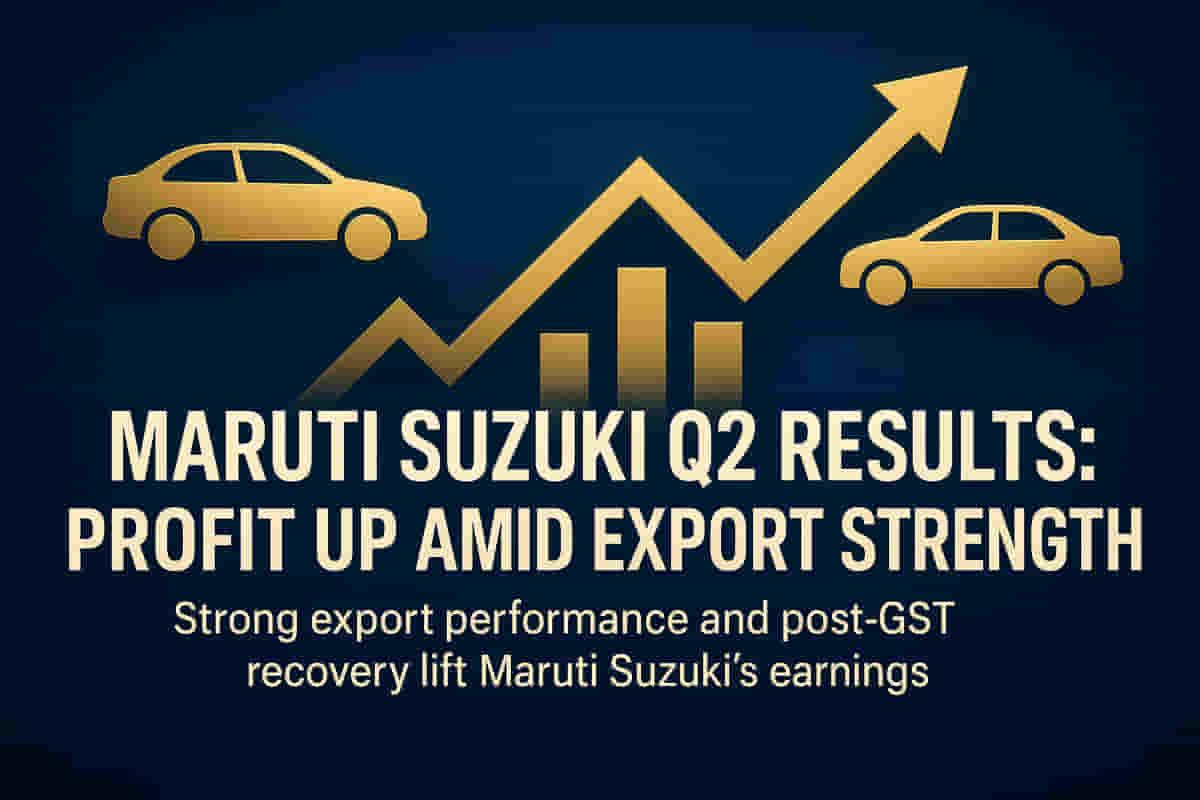Maruti Suzuki Posts 7% Rise in Q2 Profit, Driven by Strong Exports Amidst Missed Estimates
Auto
|
31st October 2025, 3:18 PM

▶
Stocks Mentioned :
Short Description :
Detailed Coverage :
Maruti Suzuki India Limited announced its financial results for the second quarter of the fiscal year, reporting a standalone net profit of ₹3,293.1 crore, marking a 7% increase from ₹3,069.2 crore in the corresponding period last year. Despite this growth, the profit missed the estimates projected by brokerage firms like Motilal Oswal, which had anticipated an 8% rise. Net sales achieved a record high, climbing 12.7% to ₹40,135.9 crore from ₹35,589.1 crore in the year-ago quarter. Total expenses saw a 15% increase, reaching ₹38,762.9 crore.
Domestic wholesales experienced a decline of 5.1% to 4,40,387 units. This dip is attributed to customers deferring purchases in anticipation of potential price reductions following the Goods and Services Tax (GST) adjustments effective September 22. In contrast, exports surged by a significant 42.2% to 1,10,487 units, marking the highest quarterly export volume for the company.
Chairman R C Bhargava expressed optimism for the industry, expecting substantial growth in sales during the second half (H2) of the fiscal year. He highlighted that the recent GST cuts have invigorated the market, especially for small cars, with retail sales of vehicles growing by 20% in October. The share of mini cars in total sales increased post-GST reduction, with particularly strong demand observed in rural markets. Maruti Suzuki plans to finalize investments for a fifth manufacturing facility next fiscal and will re-examine its mid-term growth targets given the current market traction.
Impact This news is significant for the Indian stock market as Maruti Suzuki is a major player. The miss on estimates might create short-term investor sentiment pressure, but the strong export performance and positive outlook post-GST, especially for the small car segment and rural demand, provide a positive counter-narrative. The company's future investment plans indicate confidence in future growth. Impact Rating: 7/10
Difficult Terms Explained: Standalone Net Profit: This refers to the profit generated by a company from its core business operations, excluding any profits or losses from subsidiaries or joint ventures. Wholesales: The quantity of goods (in this case, vehicles) sold by the manufacturer to distributors or dealers. Retails: The quantity of goods sold by dealers to the end consumers. GST: Goods and Services Tax, a unified indirect tax system in India. H2: Refers to the second half of the financial year (typically October to March).